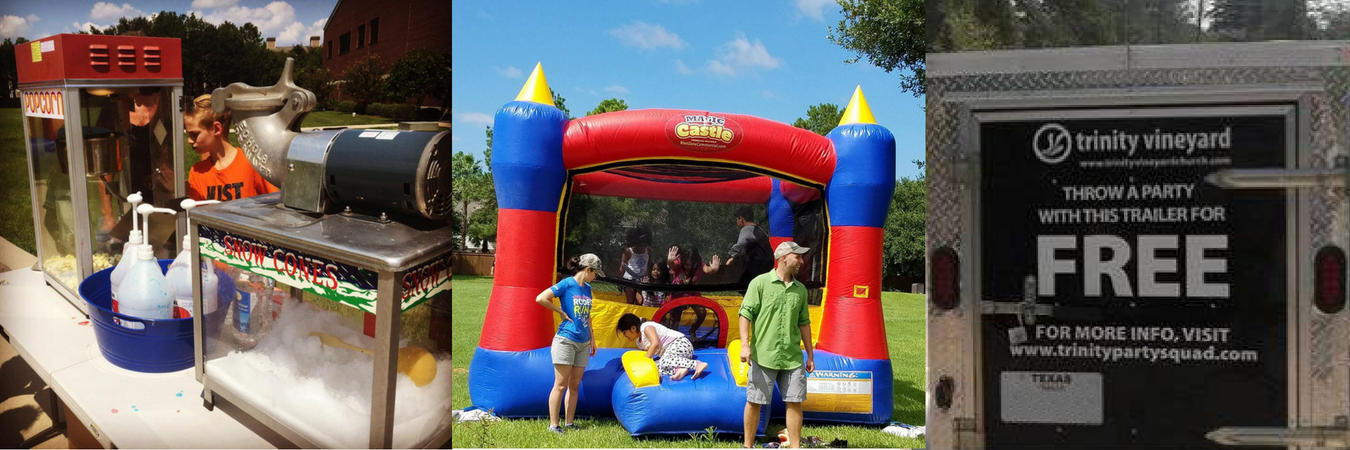I didn’t grow up on the Gulf Coast, and I certainly didn’t grow up with an appreciation for the devastation a hurricane can bring to millions of lives. Over the past 20 years, I have experienced tropical storm Allison (2001), Hurricane Rita (2005), and Hurricane Ike (2008). Each of these storms left its mark on our city, but nothing could prepare me for what took place when Hurricane Harvey rolled into Houston in August of 2017.
In the early hours of the storm’s landfall, it became obvious that this storm would impact our city like the others had not. As the pastor of a church community that exists to “engage, transform, and serve people here, near, and far,” I knew that our church would be given countless opportunities to live that out in the coming days, weeks, and months ahead.
A Long-Term Plan
While the storm was still battering our city, I received a call from the pastor at The Vineyard Church of New Orleans, asking if we would be open to serving as the base camp for Mercy Response. Birthed in 2005 (Hurricane Katrina), Mercy Response was formed to assist those impacted by natural disasters. This would be a massive undertaking for our church and would lock us in to the long-term recovery process for months to come. Through our partnership with Mercy Response, hundreds of homes would be gutted, and thousands of Boxes of Hope would be distributed to families in need.
An Urgent Crisis
After days of pounding rain, Harvey finally made its way out of our city. The local news community began to share images that were unimaginable. Water rescues were taking place and emergency shelters began to pop up all over our city. As a church community we were already making preparations to serve as a base camp for the long-term recovery of our city. However, an urgent crisis was taking shape. The emergency shelters were overwhelmed with residents and local churches in our communities were scrambling to care for these displaced and distraught families.
A Practical Need
Standing on the sidelines wasn’t an option. As a church community we are passionate about loving our neighbors and loving our city. There had to be something we could do to serve in this unique moment.
Over the years, our church had become known as the people who threw parties. We owned two party trailers that were outfitted with tables, chairs, a popcorn machine, a snow cone machine, carnival games, and a jumpy house. It might not have seemed like a practical time to throw a party, but the emergency shelters were full of children and families who needed a reason to smile. Over the next week, teams from our church would travel from one shelter to the next loving our neighbors by throwing a party.
Remember the Poor
In the precarious days after a natural disaster, the general public tends to be cognizant of the needs of the poor. Our church housed hundreds of volunteers from all over the country who came to gut homes that had been flooded. We received semi trucks full of supplies that would be distributed to families in need. We remain in awe of the generosity shown to the people of Houston.
Perhaps the biggest challenge is to remember that the poor are still among us long after the storm has passed. It’s been a year since Harvey stormed into Houston, but countless families are still trying to recover.
I’m convinced the best way to respond today will look a lot like the response we had during the storm:
We need a long-term plan. How can we serve people for the long haul?
We need to open our eyes to the urgent crisis. Who is hurting and in need of care in our community today?
We need to be practical. What resources have been entrusted to us that could serve someone in a practical way?
If we asked ourselves those questions on a regular basis, I am confident our churches would never forget the poor among us in thought or action.
 ::
::
To learn more about the Trinity Vineyard Church in Houston, TX, visit their website here.
To learn more about this ministry, visit the Trinity Party Trailer Squad here.


